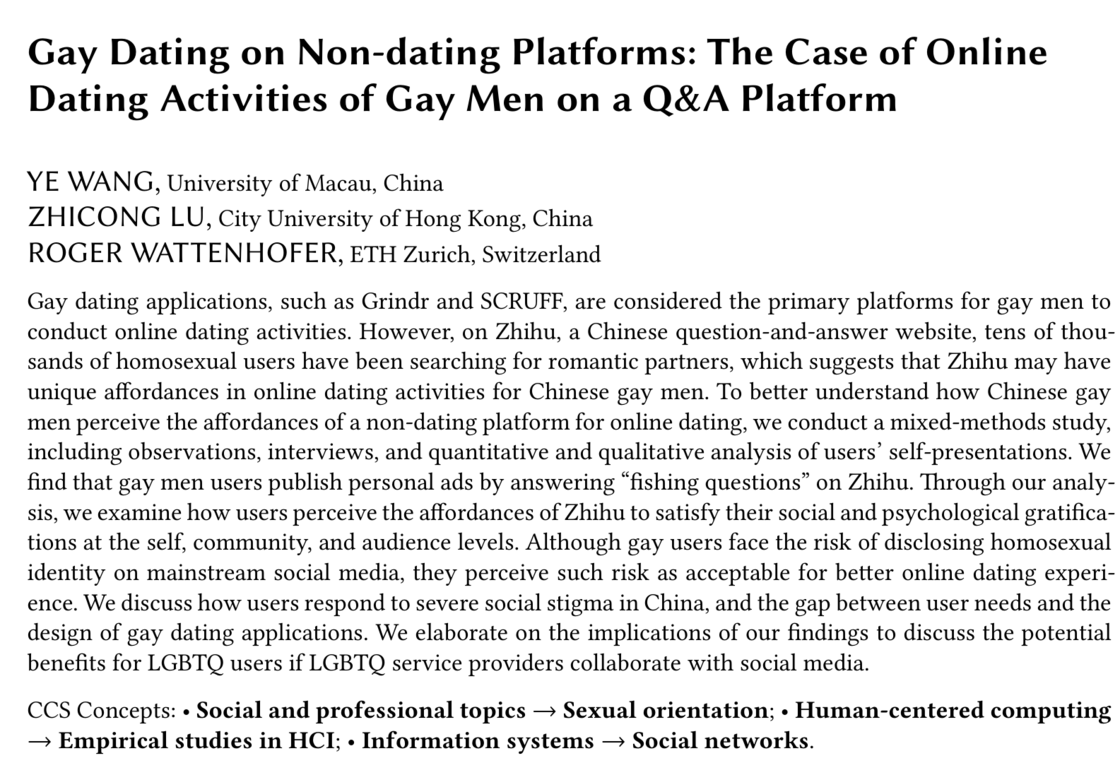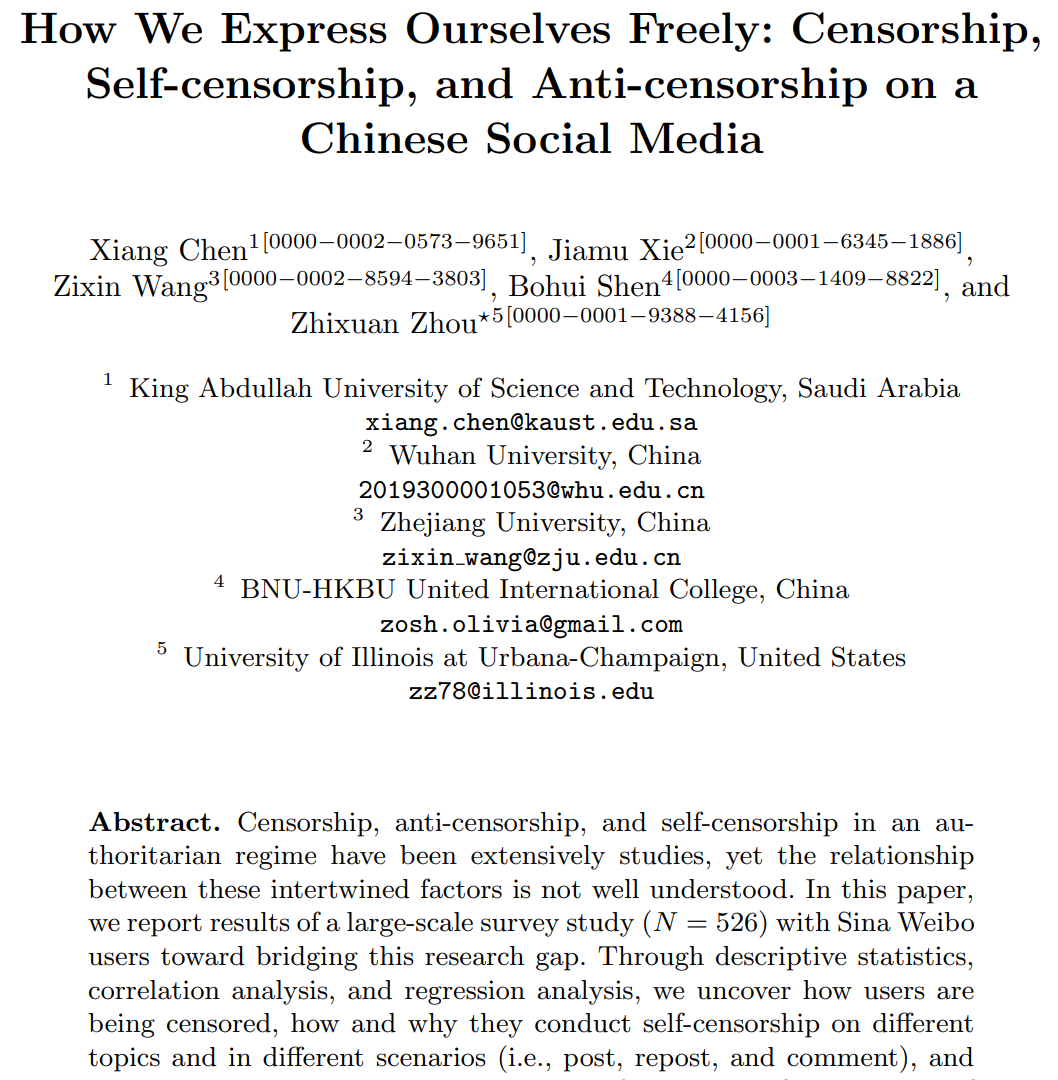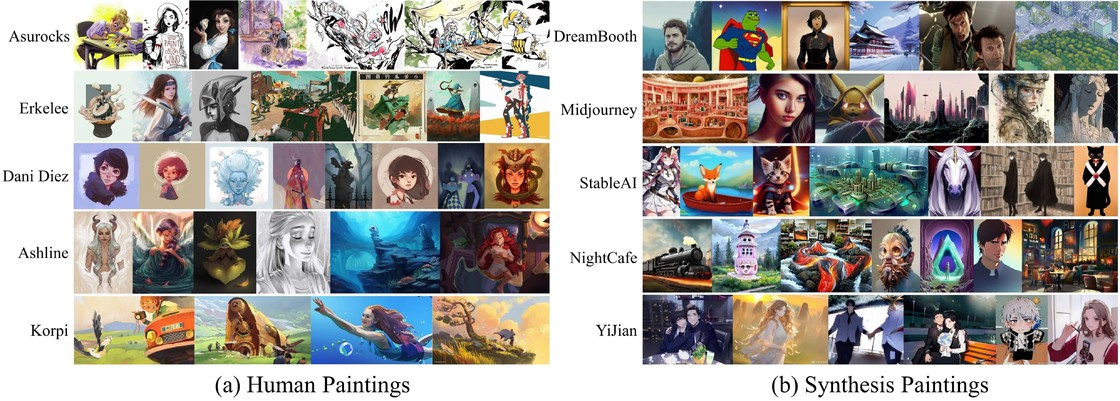AI-generated summary
Sometimes I wonder, what are we really studying in scientific research, or beyond the findings, what can our research bring to us? This is probably a rather complex and abstract question that requires some experience to answer, or perhaps there is no standard answer. So, in this article, I’ll very subjectively, even somewhat narrowly, start by sharing my story with sociology and discussing these matters.
My Journey with “Sociology”
Recently, I had a conversation with an assistant professor in the sociology department while assisting him with some technical work. He teaches a course introducing various foreign sociologists, and he mentioned to me that sociology is often a form of ideological dissemination. Towards the end of our conversation, I asked him, “What is sociology studying nowadays? Is it more like data analysis work?” He responded, “You could say that. Often, it’s about studying the connections between various factors and corresponding social phenomena, and these connections often need to be quantified and visualized in the form of data.” Later, I asked ChatGPT what social science is, and it told me that the field of social science is vast, encompassing numerous disciplines with diverse research methods, but the ultimate goal is to propose effective approaches to solving social problems.
Over the next few days, the concept of “sociology” lingered in my mind. Our computer science department recently welcomed a new professor who obtained his Ph.D. from ETH Zurich and his undergraduate degree from Peking University. I visited his personal webpage and came across an article published at a human-computer interaction conference, Gay Dating on Non-dating Platforms: The Case of Online Dating Activities of Gay Men on a Q&A Platform1, which studied the dating behavior of homosexuals on non-dating platforms (e.g., Zhihu). I couldn’t help but wonder, shouldn’t this belong to the realm of “sociology” research? Do we also have sociology professors conducting research in the computer science department? Previously, my understanding of human-computer interaction was mainly about designing, developing, and evaluating user-friendly interfaces and interaction technologies, and perhaps more familiar tasks involved visualization-related work. I briefly read through this paper, and it seemed similar to what I imagined humanities papers to be like - the author contacted many homosexual men interested in dating on Zhihu, conducted surveys and interviews with them, conducted various analyses, and then published this article.

And once, I can’t remember how I found that paper, perhaps I saw the author’s profile on GitHub. The author is a Ph.D. student in Computer Science at KAUST. The paper, How We Express Ourselves Freely: Censorship, Self-censorship, and Anti-censorship on a Chinese Social Media.2 was published at the International Conference on Information (iConference). The paper investigates how netizens, mainly on social media platforms like Weibo, express themselves appropriately. I also feel that this belongs to the field of sociology; it seems more relevant to our society because it’s unrelated to computer theory and doesn’t involve technology.

Human-Computer Interaction (HCI) is a research field in computer science, much like computer vision, natural language processing, computer networks, and software engineering. I asked my classmate in the School of Social Sciences about her research area, which is criminology under sociology. I told her that our field also has many studies related to sociology, and they also conduct such research. She told me that’s true, but students in sociology don’t publish their papers in conferences like CHI (a top conference in the field of HCI), which leans more towards computer-oriented HCI. Most of the time, they only publish in sociology-related journals and conferences.
My Journey with “Research”
As fundamental science continues to advance and evolve, the connections between disciplines have become increasingly intertwined. Therefore, while technology can solve many problems, relying solely on technology is not sufficient. It requires societal cooperation and complementary legal frameworks. For instance, in the realm of multimedia tampering detection, whether addressing the issue purely from a computer vision perspective or tracing tampering traces through online social networks, numerous researchers have conducted extensive work. I began to realize that these efforts cannot succeed solely through technological means. Without societal and legal considerations, solving the initial problem posed by sociological research can be extremely challenging. However, not solving it also has its advantages, as it means the research can continue. For example, I wonder if approaching this issue from a sociological perspective could shed light on why users share manipulated images online and how media practitioners select and disseminate images or video news on platforms.
Sometimes, as a graduate student, I often question whether conducting such simple research is meaningful, whether it aligns with my interests, and what research really entails and its entry standards. Recently, I came across an article on OpenReview, titled Embedding Fourier for Ultra-High-Definition Low-Light Image Enhancement.3 which was in the top 5% of ICLR (a leading conference in the field of deep learning). Upon reading the reviewers’ final opinions, it became apparent that the authors proposed a new task. Initially, I wondered whether this was significant, given the extensive existing research on image enhancement, particularly in low-light conditions. However, this research focused on enhancing ultra-high-definition low-light images, presenting a novel task. At first glance, it may seem insignificant, but upon further reflection, this is precisely what research is about—accumulating knowledge incrementally. The experimental section of this paper was also meticulously conducted, and the authors introduced a dedicated dataset for the new task they designed.

Just like now, with the proliferation of AI-generated content (AIGC), I’ve noticed some classmates working on image tampering detection have begun proposing methods such as “Generalizable Synthetic Image Detection via Language-guided Contrastive Learning.4” to detect synthetic images and determine whether they were generated by AI. In my view, AI-generated images should actually be called artworks rather than photographs, as most of them are heavily stylized. So the question arises: how can we determine whether a painting was created by an artist or by AI synthesis?
I’ve learned that most countries or regions currently lack specific regulations on the ownership of AI-generated content and its dissemination on social media platforms. Therefore, I tend to think of this as a copyright issue. Who owns the copyright, and should it belong to? It relies on social means and legal supervision, with technology often serving as a supplement. Recently, some regulations on the management of generative artificial intelligence services have been gradually improving in China.

Just as mentioned earlier about the phenomenon of interdisciplinary studies, sociology and technology are actually intertwined. This is why we can see research works such as those mentioned earlier being published within the field of computer science. So, sociology is quite intriguing. I suddenly remembered an interview I read before, where it was mentioned that “our universities aim to cultivate talents who are to go out into society.” So, it seems that the Chinese Department uses writing to transform society, the Arts Department uses artworks, the Law Department uses laws, and the Computer Science Department uses code…
I also thought about a topic related to the relationship between society and law, which cannot be avoided as a reason for a computer science student to use scientific and technological means to solve these problems. Instead, one should do something within their capabilities. What science and technology can do, what is being done, seems to be what our society and our laws are doing as well. So, perhaps, what we can do and what we are doing is much more than we imagine.
My Journey with “Paper”
Such insights come from research papers, from the content studied in the papers. By reading papers from the same field but different directions, or even from different disciplines, one can understand what some of the current research is about. Reading papers can help researchers discover the dynamics of research in their field, and find the next potentially valuable research topic. However, for academic researchers who are not in this field, or for most of us digital netizens, reading papers or other disciplines might seem unnecessary. So sometimes I wonder, why would someone read a paper outside their field of study? What is the purpose of a paper, do researchers want their papers to be seen by everyone, or do they just want them to be popular within their research community, or do they not care at all?
If it’s for acquiring knowledge, with the advancement of modern technology, a book or a movie can be explained in a short video of no more than 20 minutes. The avenues for acquiring knowledge seem to no longer require books. Excellent blogs and well-produced videos are often more efficient than books. Papers, in a sense, are the predecessors of books, compiling a certain number of papers through editing to produce a book. At the same time, the accessibility barrier of papers seems to erect a tangible wall for some people. To some extent, this also indicates that papers are not a suitable medium for disseminating knowledge for everyone.
Just like sometimes when I search for something, my first reaction is to use mainstream search engines, and then, based on the search query, I may choose different platforms for further searches. Should I search for videos on Bilibili, look for articles on WeChat public accounts, or find more hardcore experiences on platforms like Medium? Over the past few years, Medium has gradually become a substitute for Baidu search.
Recently, an elderly member of my family fell ill with a skin condition characterized by numerous blisters, and no one knew how it happened. We only saw the clinical presentation of many blisters. I first entered keywords like “elderly,” “blisters” on search engines, and it told me it might be a disease called something. But when I continued to search with this name, I found very little information online. At this point, I thought of CNKI (China National Knowledge Infrastructure). I entered the keywords, and the results showed that whenever a hospital reported cases of this disease, most of them would be published in the form of papers, and some would include detailed statistics, accompanied by real pictures, treatment information, and so on.
I also recalled a conversation with a roommate who studied traditional Chinese medicine. He once mentioned his grandfather’s illness to me and told me that he had seen in a paper some information about a drug treatment for his grandfather’s condition. I don’t quite remember if it was a newly approved drug or a combination treatment plan. He communicated with doctors, found a buyer, and bought the drug. However, I didn’t inquire further about the specific treatment afterward.
I started to rethink, are research papers, as one of the mediums for presenting research results, perhaps capable of something else? Just like my experience this time, papers seem to serve as a source of real cases, a content platform that one can choose without much need for verification, just like on video platforms or Medium, where one can choose what to reference.
Our Journey with “Papers”
On the internet, we often come across authors sharing their experiences on how to find papers after leaving school, how to read papers, or even how to write papers, among other topics. Based on my own experience, when looking for papers on CNKI (China National Knowledge Infrastructure) after leaving school without access through an institution, I would recommend checking out various provincial and municipal libraries, such as Zhejiang Library, Guangzhou Library, Jiangxi Provincial Library, and others. They all provide online access to CNKI and other databases, requiring only a simple reader registration to search and download papers from the CNKI database. Additionally, the Shanghai Library provides access to Springer Link/Springer electronic journal databases and IEEE Xplore databases for in-library use only, along with Elsevier/ScienceDirect resources such as The Lancet and other top medical journals that students often use.
- Zhejiang Library (Search for “Zhejiang Library” on Alipay, enter the lifestyle service account, click “New User Registration” in the service hall to register as a library reader. Zhejiang Library’s digital resources include paid databases like CNKI.)
- Guangzhou Digital Library (Readers of Guangzhou Library can register or activate their accounts online through the “Guangtu+” mini program or website. However, online registration requires being in Guangzhou or Foshan or having local identification cards or residency permits. The Guangzhou Library’s digital resources also include CNKI, Cambridge Journals, and other online databases.)
- Shanghai Library (Online registration is available, offering registration options such as Hong Kong and Macau pass, passport, Taiwan Compatriot Travel Permit, etc.)
- Jiangxi Provincial Library (The Jiangxi Provincial Library website provides detailed registration methods, with requirements including a Sesame Credit score of 550 or higher on Alipay.)
- Other provincial and municipal libraries…
Conclusion
The article contains some subjectivity and may lack clarity in certain areas. Through sharing my experience with sociology and discussing research and papers in a shallow manner, I touched on the subject. “Research” seems to be heading towards an extreme, with the path becoming narrower, but the intersections of different disciplines have provided more directions on this path, giving those who tread it more choices. Regardless of the weight or direction of research, the results are often presented in the form of “papers.” Researchers continue to advance along this path by reading cutting-edge papers from various fields. However, what “papers” can offer, apart from efficiency, is a platform for scientific content for those of us who are not actively engaged in research.

Wang, Ye, Zhicong Lu, and Roger Wattenhofer. “Gay Dating on Non-dating Platforms: The Case of Online Dating Activities of Gay Men on a Q&A Platform.” Proceedings of the ACM on Human-Computer Interaction 6.CSCW2 (2022): 1-23. ↩︎
Chen, Xiang, et al. “How We Express Ourselves Freely: Censorship, Self-censorship, and Anti-censorship on a Chinese Social Media.” International Conference on Information. Cham: Springer Nature Switzerland, 2023. ↩︎
Li, C., Guo, C.-L., zhou, man, Liang, Z., Zhou, S., Feng, R., & Loy, C. C. (2023). Embedding Fourier for Ultra-High-Definition Low-Light Image Enhancement. In ICLR 2023 notable top 5%. ↩︎
Wu, Haiwei, Jiantao Zhou, and Shile Zhang. “Generalizable Synthetic Image Detection via Language-guided Contrastive Learning.” arXiv preprint arXiv:2305.13800 (2023). ↩︎